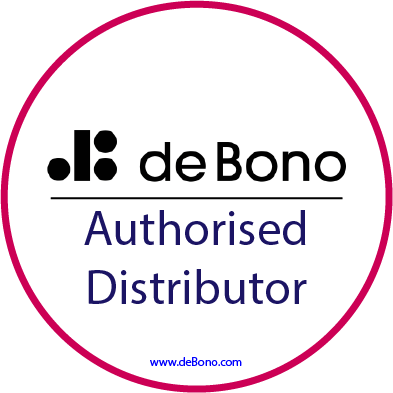 The decision is made – two weeks later you have to backtrack!
The decision is made – two weeks later you have to backtrack!
How many times has that happened to you, either as the person making the decision or as a part of the team bringing it to life. This happens to the best of us. If we are honest, it’s often because we didn’t think it all the way through, jumping to the wrong conclusion or making a decision that others reject down the road.
“Unfortunately, our existing traditional thinking habits insist that you must attack something and show it to be bad before you can suggest a change. It is more difficult to acknowledge that something is excellent and then to ask for change because although it is excellent, it is not enough.”
– Edward De Bono, Think!: Before It’s Too Late
It costs!
There is a cost to having to fix these often avoidable mistakes, not always financial or reputational, it’s a waste of valuable time and resources (yours and others around you). This is why ensuring everyone has the skills and knowledge to think critically, is a key investment for any business.
Critical thinking
In 2016, the Davos Forum highlighted core work-related skills, suggesting that the top three requirements for organisations in 2020 will be:
- Complex problem-solving.
- Critical thinking.
- Creativity.
Read our article: Change is inevitable.
There is often a lot of confusion around the critical thinking process and what needs to be done to implement it into a busy workplace. Without this process the way we think is often unstructured, regularly using argument to explore a subject. In argument, people withhold information if it does not support their point of view, often causing conflict by attacking and judging each other in the process.
A framework for successful thinking
To reach successful decisions everyone needs to focused on the same thinking tool at the same time. A suitable framework to organise group and individual thinking is Edward de Bono’s Six Thinking Hats®, it helps to:
- Separate out thinking – so we can do one thing at a time.
- Asks people to switch their thinking from one mode to another – the thinking hat is a metaphor that represents each thinking direction, with the hats easily put on and taken off.
- Separate ego from performance – so all participants feel included and contribute, rather than attacking the thoughts of others.
- Ensure people follow a specific thinking process – signalling what thinking process will be used next, keeping negativity in check and removing the risk of stagnation and disinterest.
- Expand from one- to multi-dimensional thinking – ensuring better solutions are found through creative thinking.
- Explore subjects in parallel, from the same perspective at the same time – the group pools all of their ideas rather than defending one point of view, or another.
- Provide specific time for creativity – you are no longer too busy to think, effective thinking results in generating collaborative solutions and ideas that can make a real difference to the business, saving you time – long-term.
“We may have a perfectly adequate way of doing something, but that does not mean there cannot be a better way. So we set out to find an alternative way. This is the basis of any improvement that is not fault correction or problem-solving.”
– Edward De Bono, Six Thinking Hats®
Pop your thinking ‘hat’ on
The framework can be utilised for many critical thinking and group interaction situations like team meetings, brainstorming sessions, problem-solving, conflict resolution, discussing arguments and in-depth analysis.
There are six imaginary thinking hats, each being a different colour and each representing a different type of thinking.
When you use one of the hats, you focus on that mode of thinking. When you change from one hat to another, you change to the thinking mode indicated by the hat’s colour. It is worth training every thinker to be able to understand and use each hat. We are often asked by clients to train specific teams who need to have a full, multi-dimensional understanding of a challenge or problem. Only this approach allows them to find creative and innovative solutions.
“Creativity involves provocation, exploration and risk-taking. Creativity involves “thought experiments.” You cannot tell in advance how the experiment is going to turn out. But you want to be able to carry out the experiment.”
– Edward de Bono, Six Thinking Hats®
Your next steps
Find out more about the workshop here.
If you’ve realised that you have the same challenges with your critical thinking interactions – our helpful team are here to find you the right solution:
- For you: the world-renowned Edward de Bono’s Six Thinking Hats® is available as a public workshop, ideal for individuals, smaller groups or if you want to review the workshop before a wider roll-out. Delivered in major cities across the UK. Find out more and book.
- For your team: develop the capability of your organisation and make the most of your budget. Enquire about in-house training.
- For your organisation: licence your own training delivery teams to deliver Edward de Bono’s Six Thinking Hats® directly. Find out more about trainer accreditation.


